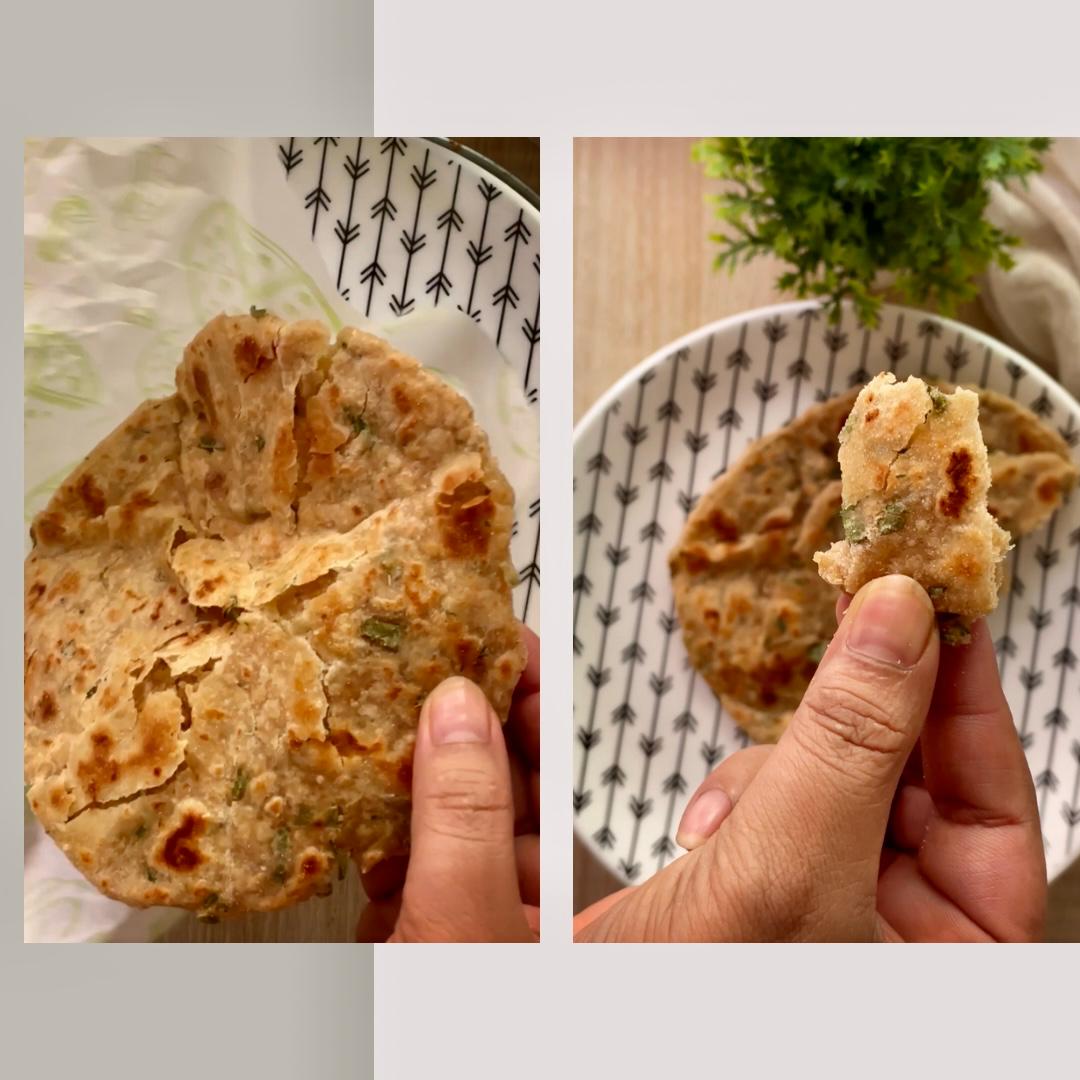
Creating a little kitchen garden in my house is no less than a dream for me. Living in a concrete jungle, we crave greenery and put in some effort to make a small kitchen garden. I love planting herbs like mint, coriander, carom leaves, and curry leaves in my kitchen garden, and I often use these herbs in my recipes. Ajwain, also known as carom seeds, is one of my favorites in my kitchen garden. I frequently make ajwain paratha for my kid’s lunch box and as a companion to my morning chai. This ajwain paratha is easy to make and healthy at the same time.
Ingredients:
- 1 cup wheat flour
- 1/2 cup finely chopped ajwain leaves
- 1 tablespoon ajwain seeds
- 1 tablespoon oil or ghee (plus extra for cooking)
- 1/2 teaspoon salt (adjust to taste)
- Water (as needed)
Method:
Wash the ajwain leaves thoroughly and pat dry the leaves, now finely chop them and keep aside.
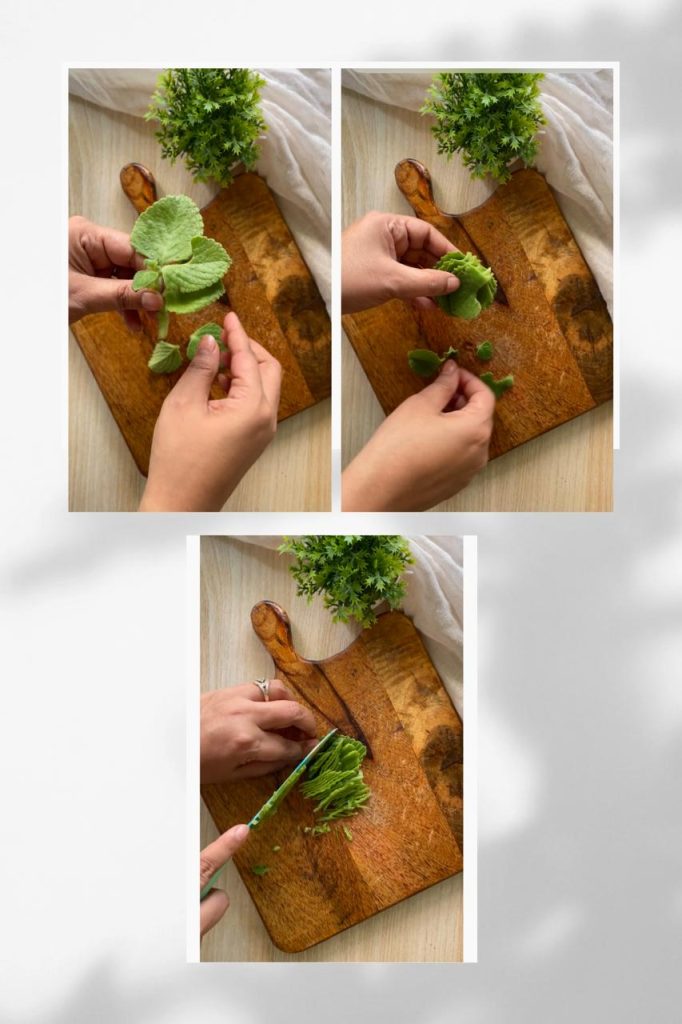
In a large mixing bowl, take wheat flour and add ajwain seeds, oil or ghee, salt, and the chopped ajwain leaves. Mix everything well to combine the ingredients.
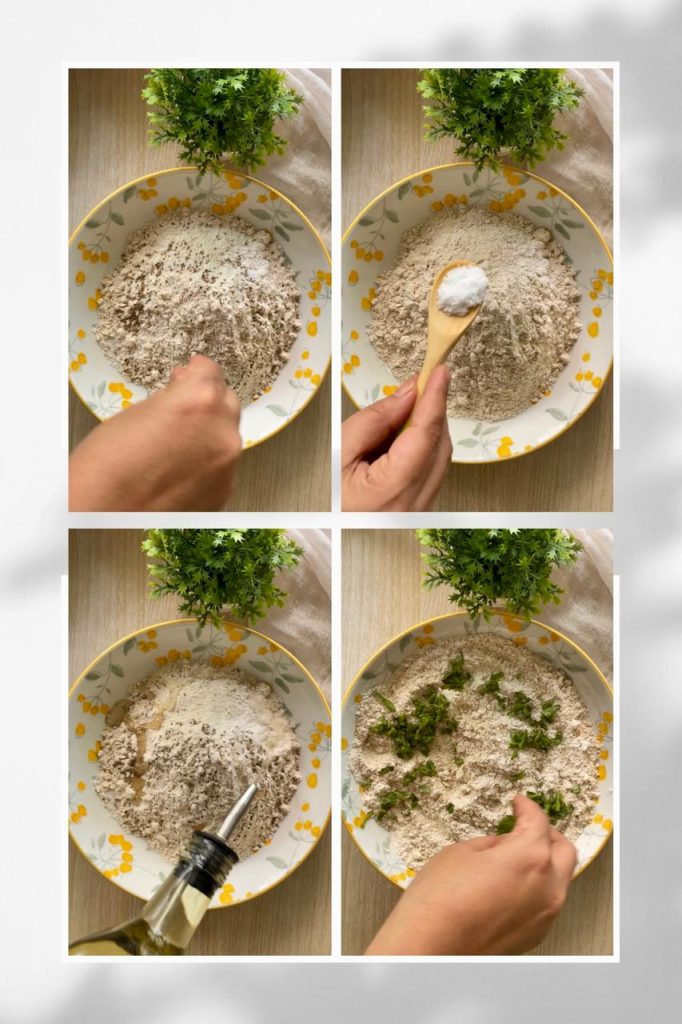
Gradually add water to the mixture, little by little, and knead it into a smooth and firm dough. The amount of water required may vary, so add it gradually until the dough comes together. The dough should be soft but not sticky.
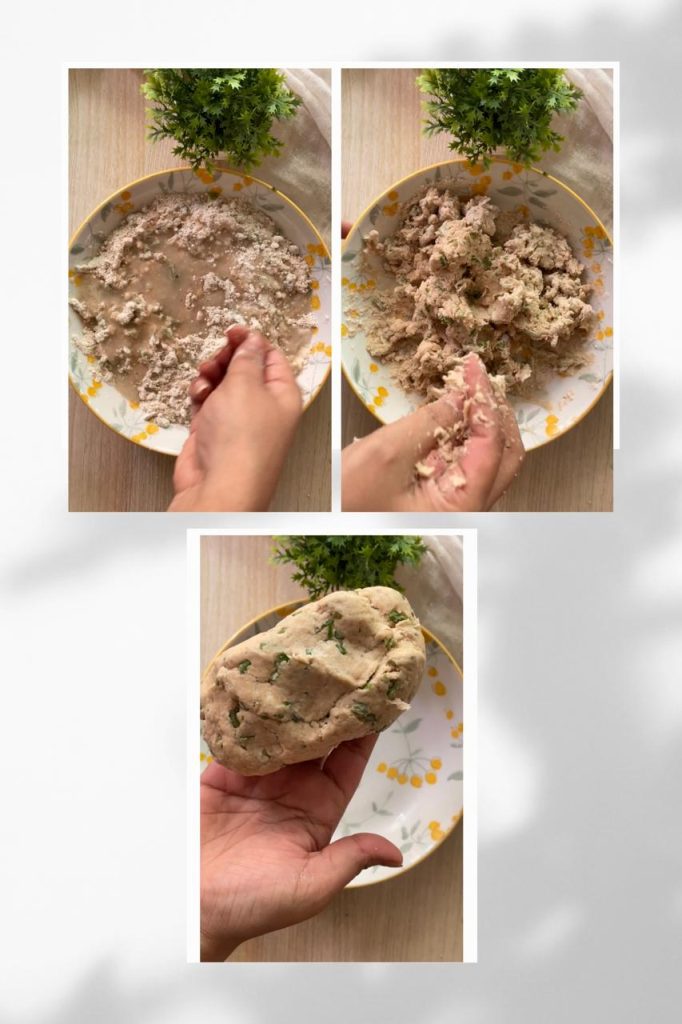
Once the dough is ready, cover it with a damp cloth and let it rest for about 10-15 minutes. After the resting period, divide the dough into small sized portions. Take one portion and dust the rolling surface with flour and roll out the portion into a circle using a rolling pin. Heat a tawa or a non-stick pan over medium heat. Place the rolled paratha on the hot tawa and cook it . Drizzle a little oil or ghee around the edges of the paratha and flip it over using a spatula. Press the paratha gently with the spatula to help it cook evenly and cook for another minute or until both sides are golden brown.
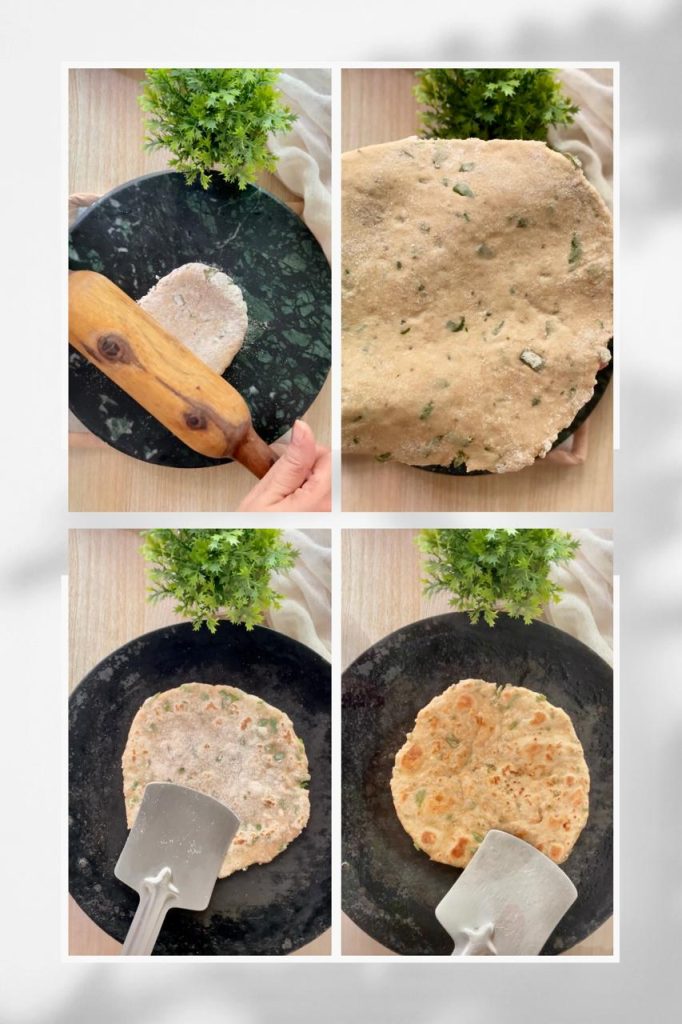
Remove the cooked paratha from the tawa and place it on a plate. Serve the ajwain leaves paratha hot with a side of yogurt, pickle, or any curry of your choice. It also makes a delicious addition to a lunchbox or can be enjoyed with a hot cup of tea.
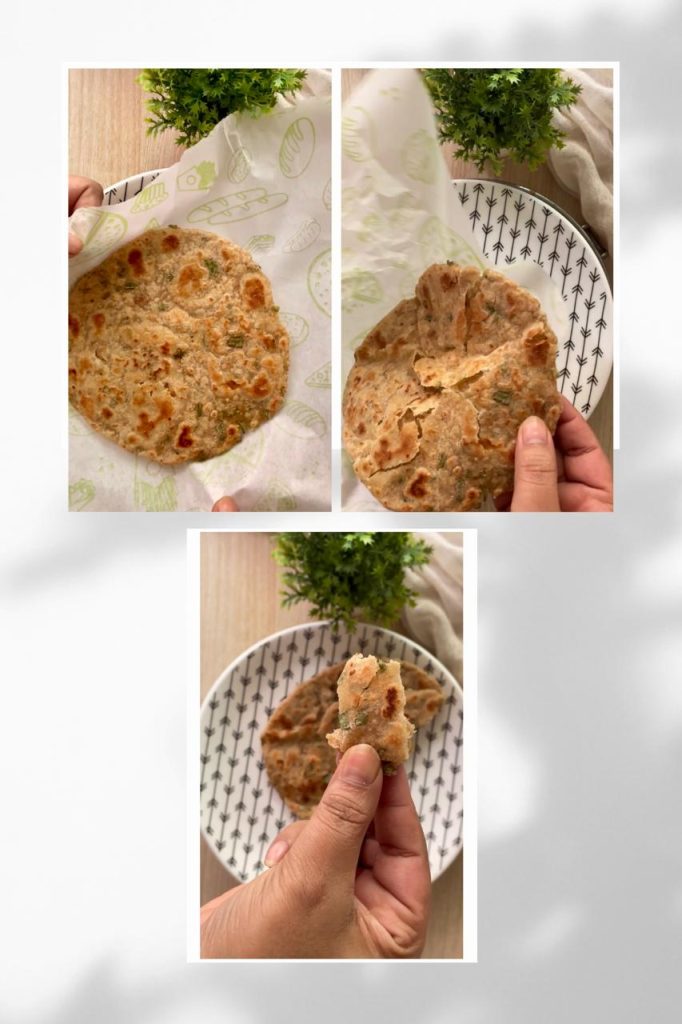
Enjoy your homemade ajwain leaves paratha! I hope you enjoyed reading this recipe. Do give this recipe a shot. If you try this recipe, do give us a shout out. Just click a picture and tag us on @masala.monk or use the hashtag #MasalaMonkRecipe and share on Instagram and Facebook. We would love to hear from you.










